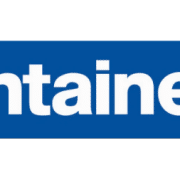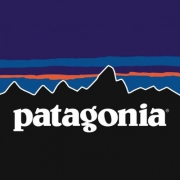Company Snapshot: At Costco, Culture is King
The first of three Company Snapshots, these research-based pieces by guest author Jessica Guo look at aspects of successful companies that can be examined for strategy and information of benefit to both active businesses and the academics that study them. Additional Company Snapshots will be published on Mondays for the next two weeks.
Company Snapshots: At Costco, Culture is King
“Culture is not the most important thing in the world. It’s the only thing.”
According to Jim Sinegal, founder of retail giant Costco, the company’s culture drives its business strategy. Costco’s success turns on its ability to recognize and respect what Sinegal calls “what we stand for in the customer’s eyes, and what we mean to all of the stakeholders in our business.” Those core tenets include putting the customer first, rewarding its employees, and valuing its suppliers.
Developing Corporate Values
Sinegal’s education in business started in 1954, when he worked at the discount chain Fed-Mart as a bagger to help pay for his education at San Diego State University. He soon left college to rise up the ranks at Fed-Mart, eventually working under Sol Price, Fed-Mart’s founder and a retail pioneer, for thirty years. Price impressed upon Sinegal the importance of trust in customer relationships—a part of the reason Sinegal insists on Costco’s disciplined margins, honest prices, and great value.
Under Price, Sinegal developed his business philosophy: “We have to obey the law, we’ve got to take care of our customers, take care of our people, and respect our suppliers. We think if we do those four things, pretty much in that order, that we’re going to do what we have to do in the long term, which is to reward our shareholders.”
Sinegal’s thinking dovetails with University of Virginia Professor R. Edward Freeman’s concept of stakeholder theory: that businesses should create value for stakeholders (those beyond the central financial shareholders), i.e. those affected by the business, including employees, communities, suppliers, and other actors. As Sinegal puts it, “Our view is that you can reward the shareholders in a short term by not paying attention to one of those aspects, but you can’t do it in a long term…You are either going to have labor problems, or you are going to break the law, or your customers are going to be turned off, or the suppliers are not going to want to do any business with you.” He adds, “Sooner or later you are going to stumble very badly.”
Sinegal hopes to build an organization that will be around in fifty years, and that means Costco has obligations to all stakeholders—suppliers, employees, the community, and customers. A key part of Costco’s business model, Sinegal says, is its investment in its employees as the critical piece of serving its customers.
“We count on very significant productivity,” he says. “We pay high wages and have a very healthy benefit plan. Of every dollar that we spend on our business, $0.70 is on people.”
In her research on retail supply chain and store operations management, Zeynep Ton, an adjunct assistant professor at the MIT Sloan School of Management and the author of The Good Jobs Strategy, found that some retail companies often view employees as a cost to be minimized by way of poor pay and limited training. She found that this perspective depressed morale and consequently reduced the quality of customer service, ultimately negatively impacting the bottom line.
Continue reading by downloading a free PDF of this Company Snapshot >>
Jessica Guo graduated from NYU Stern (BS ’17) with concentrations in Finance and Global Business and a minor in Social Entrepreneurship. Her interests lie at the intersection of business and social impact, stemming from her belief that business can be a key force for positive and sustainable change.





